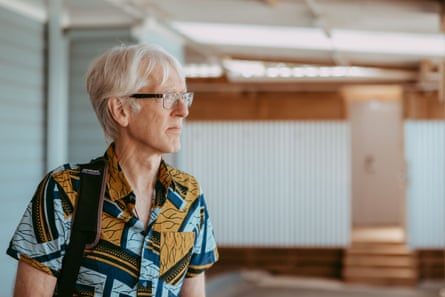New Zealand’s emergency housing system that temporarily places homeless people in motel units is breaching human rights, with residents reporting filthy and unsafe environments, an inquiry has found.
The report released on Wednesday by the Human Rights Commission included what it called, “distressing” testimonies from those living in emergency housing. It said that while the intent to house people was good, the system was in some cases exacerbating problems and trauma.
One family described their motel accommodation as “absolutely disgusting with holes in the walls, vomit and food on the walls, mouldy curtains which affects [their child’s] asthma.”
The report found that the government’s emergency housing system had breached three human rights obligations, including that the motel accommodation did not meet the standards for a decent home due to often being unclean, unsafe or in poor condition; that the government’s decision to exclude emergency housing clients from protection under the Residential Tenancies Act was a “serious and ongoing breach”, as well as a failure to put in other accountability arrangements.
Homeless New Zealanders are spending longer living in motel emergency housing than ever before, with some staying in what is meant to be short-term accommodation for months, or even years.
The use of motels for emergency accommodation began in 2016, under the previous National government. It was intended to be a stopgap, but as the country’s housing crisis worsened, the need for privately owned motels grew. In 2020, when international borders closed due to Covid-19, the government used newly empty motels to move people off the street as the country locked down.
There are now more than 26,000 people waiting for social housing, nearly 21,000 more than five years ago. Close to 9,000 are living in emergency accommodation, with Māori making up 60% of those. The Guardian spoke to tenants in September – some of whom had been living in motels for more than two years – about the toll living in such accommodation can take.
“An emergency housing system should meet basic human rights standards, be accountable to those it serves, and help people in their journey out of homelessness,” said Paul Hunt, the chief human rights commissioner.
“Yet these features are lacking in parts of our emergency housing system, and constitute a breach of the human rights of those it is meant to help.
“We heard from young people who felt so unsafe living alongside some adults in emergency accommodation that they have resorted to or returned to living on the street,” Hunt said.
“We also heard stories of children who are now two or three years old and have only ever known living in a motel room.”

A former resident said they had to live with their child in a car for four to six weeks. “Someone was stabbed in my transitional home and I asked for a transfer. It was denied and I was told either stay in this house or move out,” they said.
Others described feeling threatened by motel management, and other clients, some of whom had significant mental health and addiction needs.
The report acknowledged the historic decisions by previous governments that had contributed to the system – including the depletion of public housing stock in the 1990s and 2010s, that has led to a shortfall of decent homes.
The commissioner also highlighted the “very significant efforts” the government had made in the past five years to deliver more equitable housing, such as a $3.8bn housing acceleration fund, legislative changes to improve conditions for renters, the Māori national housing strategy, and the introduction of healthy homes standards.
But he said it was time the government phased out the use of privately owned motels to deliver emergency accommodation, for a new system to be designed with Māori needs at the forefront.
“A refreshed, unified emergency housing system should focus special attention on the rights, wellbeing, and needs of children and young people experiencing homelessness,” he said.
On Tuesday – ahead of the report’s release – the government announced it would agree to 10 actions recommended in a separate review by the housing and social development ministries to improve emergency housing.
The housing minister, Megan Woods, said that review confirmed that not enough houses had been built in the right places, for the right prices nor in a way that meets people’s needs.
“It’s time to reset the system and improve how people enter emergency housing, how they are supported while there, ensure they have good quality accommodation, and increase support to help them exit.”
